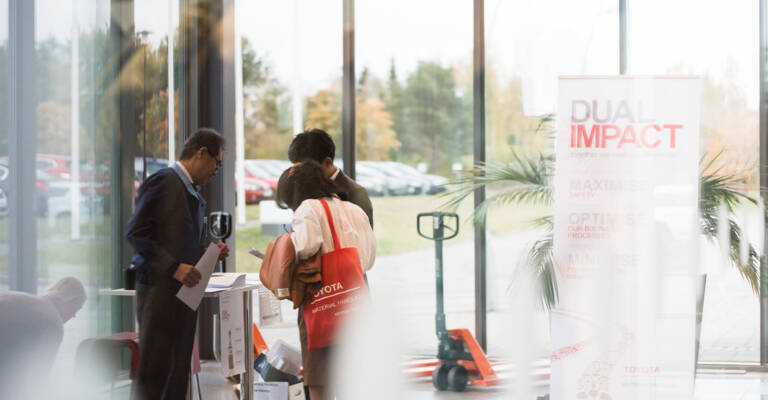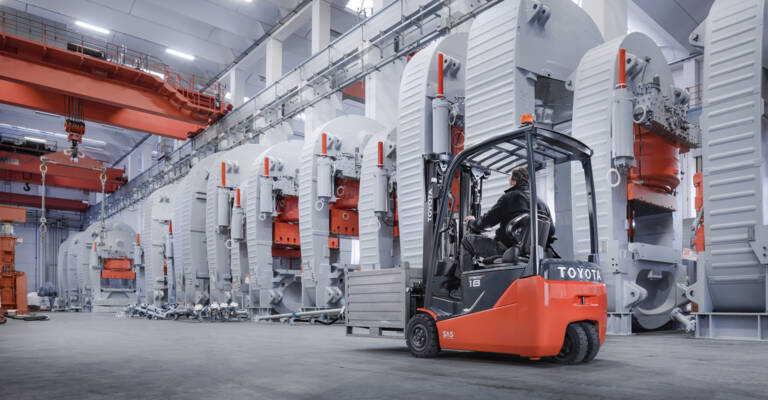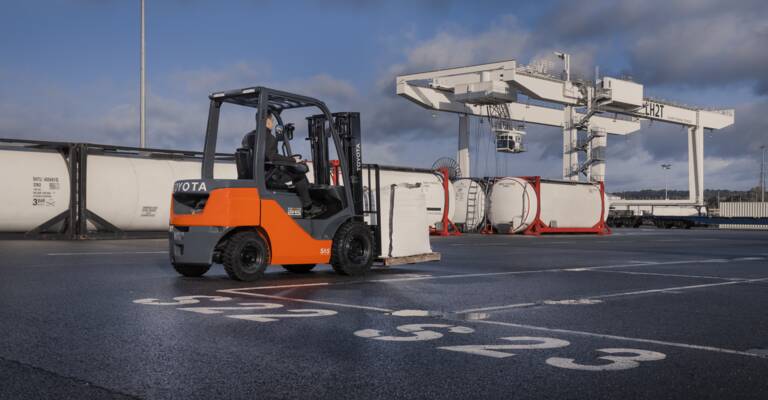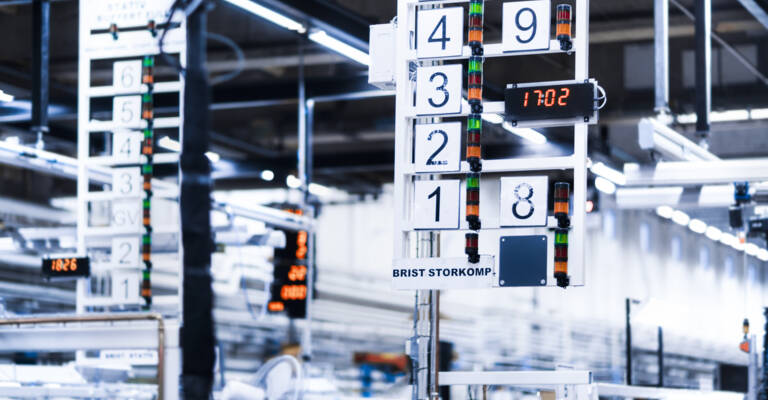We produced 48% more masts in Ferrara while using 9% less energy
Italian factory producing customised masts
In 2005, we acquired the Lift Truck Equipment (LTE) factory in Ferrara, Italy. It has been successfully running since 1976, designing and developing special masts and mast equipment for forklift trucks.
The factory serves a range of forklift truck customers (counterbalance, warehouse, side loader and off-road) by manufacturing standard and special masts, fork positioners and integrated side shifters. The factory produces over 10,000 masts per year.
ISO 50001 certification
Since acquiring LTE, we implemented the Toyota Production System (TPS), which organises manufacturing, design and logistics in the factory, to provide our customers with the highest-quality products.
Inspired by the TPS ‘just-in-time’ delivery for parts and labour, our team implemented ISO 50001 to work towards a ‘just-in-time’ delivery of energy. This international energy management standard helps organisations to minimise energy use and CO2 emissions, one of the main contributors to climate change. In our case, it also meant immediate return on investment and a more competitive value proposition to our customers in the future.
Step-by-step improvements
Following certification, a ‘just-in-time’ monitoring system was installed, making it easier to analyse energy parameters. It yielded improvements within four years in the areas of lighting, electric motors and gas consumption.
Lighting
By replacing neon lamps with LED smart lamps, the factory saved:
- 155,144 MWh/year
- €139,000 over five years
- 62 tonnes CO2/year
- 29 tonnes of equivalent petroleum/year
All data are in comparison with Toyota Material Handling Europe’s FY12 base year for setting environmental targets. By replacing the transparent cover in the milling department, increasing natural light in the factory, we saved 10,666 kWh/ year.
Electric motors
We improved the efficiency of electric motors by testing them during working hours and substituting old parts with new energy-efficient ones where necessary. When old motors fail, we have a policy to always replace them with the most energy-efficient new model rather than doing like-for-like replacements. By doing so, the factory saved €14,350 per year.
Gas consumption
In the Coating Plant department, we began to use low-temperature curing paints, which provide more durable coatings. Ovens to dry the paints were also tested for their efficiency and adjusted accordingly. By doing this, we reduced annual gas consumption by 2 GWh whilst production volumes going through the painting process increased by 48%.
Next steps
Decoupling growth from resource use is what sustainable development is all about. Through the standard’s Deming cycle (Plan-Do-Check-Act), we are improving the factory’s efficiency while reducing its impact.
We are extending the mast factory in Ferrara to accommodate increased demand. Having gone through the process to minimise energy use of the existing plant, we knew what to look out for in commissioning the new plant. We are therefore confident that we can make some further step changes in energy productivity in the future.
“We needed to bring many people on board as we worked to obtain the ISO 50001 energy management system certification, and this team effort continues to pay off.”
Costanzo Marsan, Process Engineering
Rudy Zaramella, Environmental expert
Ferrara Factory, Italy
Toyota Material Handling Europe
ISO 50001 implementation has led to:
- 39% less energy used per mast produced
- 33% less CO2 per mast produced
- Over €150,000 in annual savings
- Increased workers’ participation




